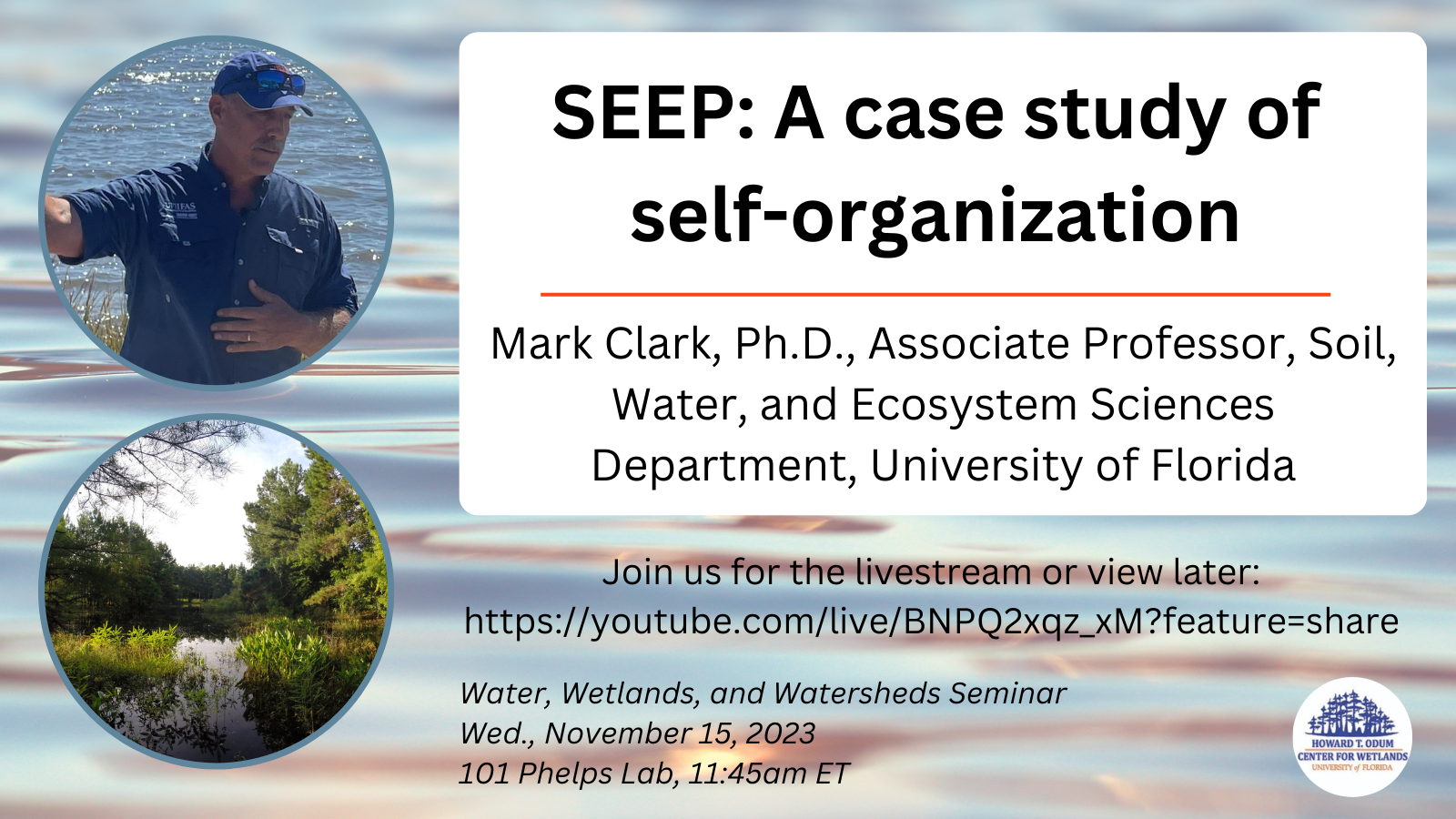
Mark Clark, Associate Professor, Department of Soil, Water, and Ecosystem Sciences, University of Florida
Join us for the livestream November 15th, 11:45am ET: https://youtube.com/live/BNPQ2xqz_xM?feature=share
(Please visit our YouTube channel main page for the stream if there are any issues with the direct link.)
abstract
In 1995, creation of the Natural Area Teaching Laboratory, a final exam question in Jack Putz’s Ecosystems of Florida class, formation of the UF Wetlands Club and a cadre of students indoctrinated in systems thinking and the concepts of maximum power and self-organization all conspired to initiate the Stormwater Ecological Enhancement Project (SEEP). Originally designed as a conventional stormwater retention basin in 1989, a redesign of the basin to increase biodiversity, improve water quality, enhance aesthetics, and facilitate research and education opportunities was implemented in 1998 and 1999. The new design was not meant to start from scratch, but instead modify the hydrologic drivers of the system and introduce more genetic information to take advantage of created habitat and then let the system self-organize. Although monitoring data is limited, periodic assessments and research projects provide snapshots of the systems development. Species richness has nearly quadrupled, water quality has been improved and deposition of heavy metals associated with stormwater runoff is now constrained to specific areas within the basin. The addition of a boardwalk and interpretive signs in 2008 has significantly increased public use and awareness of the area. More broadly, the idea that a stormwater basin can be enhanced to serve more than just the function of runoff attenuation and water quality improvement, has motivated local governments and developers to integrate some concepts of SEEP into their local ordinances and development designs. This seminar with discuss the underlying concepts of the enhanced design and illustrate changes that occurred in the basin over the past three decades.
bio
Dr. Mark Clark is an Associate Professor in the Soil, Water, and Ecosystem Sciences Department at the University of Florida. He is also an Extension Specialist with UF/IFAS in wetlands and water quality. Mark has over 30 years’ experience working in Florida’s marine and freshwater systems mainly focused on nutrient management, evaluation of urban and agricultural BMPs, innovative biological treatment systems and integration of living shorelines to address coastal erosion and enhance ecological function. He received his MS and PhD at UF starting at the H.T. Odum Center for Wetlands in 1992.
postcard
